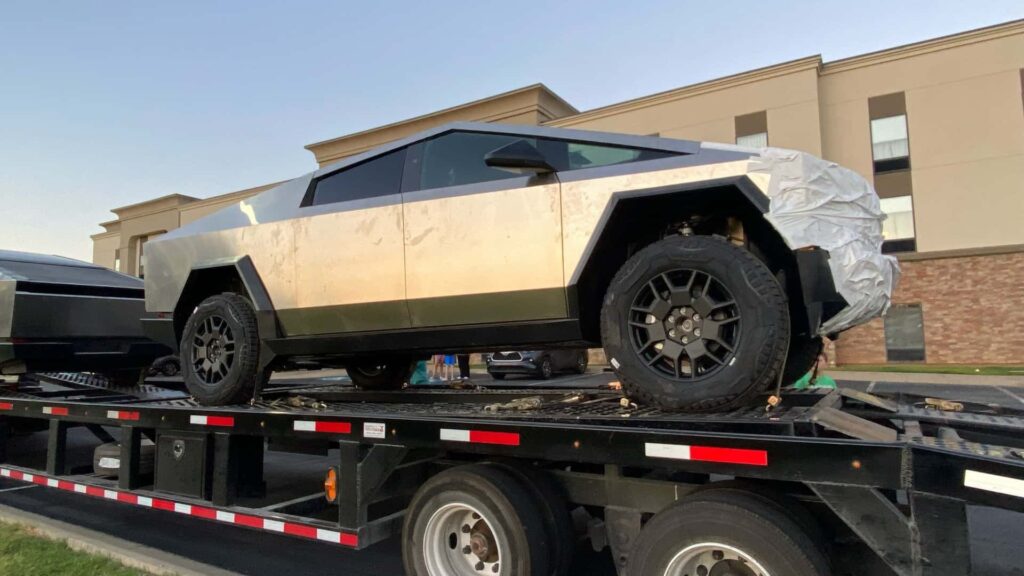Tesla, the leading electric vehicle manufacturer, has initiated a sweeping recall affecting approximately 700,000 vehicles due to a potential safety concern with their tire pressure monitoring system. The recall, announced by the National Highway Traffic Safety Administration (NHTSA), spans multiple vehicle models and years, highlighting ongoing quality control challenges for the automotive giant.
The safety issue centers on a critical warning light malfunction in the tire pressure monitoring system, which may fail to maintain illumination between vehicle starts. This defect affects a broad range of Tesla’s lineup, including the newly released 2024 Cybertruck, Model 3 vehicles manufactured between 2017 and 2025, and Model Y vehicles produced from 2020 to 2025.
Tesla’s response to this safety concern demonstrates the company’s commitment to leveraging its advanced technological infrastructure. Rather than requiring owners to visit service centers, Tesla plans to address the issue through an over-the-road (OTR) software update, which will be provided at no cost to affected vehicle owners. The company has scheduled to mail notification letters to impacted owners by February 15, 2025, ensuring comprehensive communication about the recall process.
This latest recall adds to Tesla’s growing list of safety-related actions over the past year. The Cybertruck, Tesla’s bold entry into the pickup truck market, has been particularly problematic, requiring seven separate recalls in the last year alone. These recalls addressed various issues, including problems with the rear-view camera functionality, defective windshield wipers, and concerns about loose truck beds, highlighting the challenges of bringing innovative vehicle designs to market while maintaining stringent safety standards.

The company’s recall history reveals a pattern of addressing safety concerns through its sophisticated software update capability. A notable example occurred in June when Tesla issued an over-the-air update affecting 1.8 million vehicles, including select Model 3, S, and X vehicles from 2021-2024 and Model Y vehicles from 2020-2024. This update addressed a potentially dangerous issue where vehicle hoods could become loose during operation if not properly secured.
Tesla’s approach to recalls reflects the evolving nature of automotive safety in the digital age. While traditional recalls often require physical vehicle modifications at service centers, Tesla’s ability to deploy software fixes remotely demonstrates the advantages of connected vehicle technology. This capability not only minimizes inconvenience for owners but also allows for rapid deployment of safety improvements across the fleet.
However, the frequency of these recalls raises questions about Tesla’s quality control processes and the challenges of maintaining consistent safety standards across its expanding vehicle lineup. As the company continues to push boundaries with innovative designs and features, ensuring robust safety systems becomes increasingly critical.
The tire pressure monitoring system, in particular, represents a fundamental safety feature required by federal regulations. Its proper functioning is essential for preventing accidents and ensuring optimal vehicle performance. The current recall underscores the importance of maintaining these basic safety systems even as automotive technology becomes more sophisticated.
Looking ahead, this recall serves as a reminder of the complex balance between innovation and reliability in the automotive industry. As Tesla continues to lead the electric vehicle revolution, maintaining consistent quality control and addressing safety concerns promptly will be crucial for maintaining consumer trust and market leadership. The company’s ability to quickly deploy software fixes, while advantageous, also highlights the growing interdependence between traditional automotive safety systems and digital technology.
For Tesla owners, this recall represents another example of the company’s commitment to addressing safety concerns through its technological infrastructure, even as it raises questions about the frequency of such issues. As the automotive industry continues its rapid evolution toward electric and increasingly connected vehicles, the handling of safety recalls will likely continue to evolve, with software updates playing an increasingly central role in maintaining vehicle safety and performance.
















Add Comment